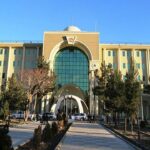After the successful conclusion of the 20th National Congress of the Communist Party of China (CPC) in October, politicians and scholars in Nepal recently attended a seminar titled “The New Leadership of the CPC: The Influence on World Order” in Lalitpur, a Nepalese city. During the seminar, attendees discussed achievement made by the Chinese people under the leadership of the CPC. They also agreed that China’s development peaked to a historical high and will provide Nepal with an opportunity to synchronize development with China.
The event, chaired by Devendra Medhasi, a retired Nepal Army major general, was organized by the Association for Social Transformation and Humanitarian Assistance (ASTHA) Nepal, a non-profit organization. Economists, foreign policy analysts, and media personalities attended the program.
Nepali observers suggested that authentic, unbiased, true, and concise information about China and CPC has been long needed in Nepal.
Khadga K.C., a professor at the Department of International Relations, Tribhuvan University, in Nepal, said at the event that a total of 832 impoverished counties and close to 100 million poor rural residents have been lifted out of poverty in China, and, among them, more than 9.6 million impoverished people have since been relocated from inhospitable areas. China has, once and for all, resolved the problem of absolute poverty in the country, making significant contributions to the cause of global poverty reduction, the professor said.
“It is important for Nepalis to know about the political and other developments taking place in neighboring countries, including China,” Balmukunda Regmi, a professor at Tribhuvan University, told the Global Times. “China has made great developments under the leadership of the CPC. In just a matter of seven decades of CPC leadership, China has become the second largest world economy, and the first country in the world to save each citizen out of absolute poverty.”
Talking about China’s economic progress in the last decade, K.C. said that the country’s GDP has grown from 54 trillion yuan ($7.53 trillion) to 114 trillion yuan to account for 18.5 percent of the global economy, up 7.2 percentage points. “China has remained the world’s second largest economy, and its per capita GDP has risen from 39,800 yuan to 81,000 yuan. It ranks first in the world in terms of grain production, and it has ensured food and energy security for its 1.4 billion people,” he said.
“China has built the world’s largest networks of high-speed railway networks and expressways, and made major achievements in building airports, ports, and water conservancy, energy, information, and other forms of infrastructure,” he said.
“We can diversify our trade by enhancing railroad connectivity with China. At the same time, we need to enhance domestic production and export to other countries including China,” K.C. said.
The CPC’s 20th National Congress is of great significance on the diplomatic front. It has focused on promoting world peace and development, which is the major need of today. It emphasizes a community with a shared future, which reflects upon the collective development of the countries, Shristi Kafle, a Kathmandu-based independent journalist, told the Global Times.
For South Asia, it’s more important as the countries are in the development stage. And for neighboring countries like Nepal, the concept of shared development could open up more opportunities and pave the way for a better future. China has been a helping hand for all developing countries in the region, be it in infrastructural development, investments, fighting disasters, or epidemics, and in overall economic endeavors. Amid enough challenges in the region, Chinese diplomacy could signify an impetus of growth through friendship and cooperation and help South Asia shine more, said Kafle.
In an exclusive interview with the Global Times, outgoing Chinese Ambassador to Nepal Hou Yanqi said that Nepal is an important partner to China’s construction of the Belt and Road Initiative in South Asia, and the two countries signed a Memorandum of Understanding on BRI cooperation in 2017. Since then, positive progress has been made in cooperation in various fields such as connectivity, economic and trade investment, infrastructure, and people-to-people and cultural exchanges, making important contributions to Nepal’s economic and social development.
K.C. said that Nepal hasn’t fully grasped the opportunities brought by BRI, which doesn’t serve the country’s interests. “We signed up to the BRI in 2017 and later on selected nine development projects under it. However, we didn’t work toward executing those nine projects,” K.C. said.
Common sense against interference
Scholars also said Nepal should better adapt to evolving geopolitical climates.
“The US Indo Pacific Strategy, the Quad among Australia, India, Japan, and the US, the AUKUS (the trilateral security pact between Australia, the UK, and the US), and the changing national security of the US aiming to counterbalance and contain China in global affairs and China’s BRI are the evidence of the offing of the New Cold War,” K.C. said.
In an interview with the Global Times, K.C. said that Nepal has done its best to maintain an independent and non-aligned foreign policy with its close neighbors, and major and super powers.
Nepali people are fully aware of US strategies in Nepal and its attempt, and Nepali people are “working to reverse the Cold War attitude of confining one power by another in world affairs.”
K.C. said that for the majority of the Nepali, it will be crucial to gain a true understanding of how China was able to achieve such significant socioeconomic transformations, particularly regarding the reduction of poverty, the equitable distribution of resources among the greater Chinese population, and the advancement of multifaceted development at home and growing influence abroad.
In an interview with the Global Times in July 2021, Krishna Bahadur Mahara, former speaker of the House of Representatives of Nepal, said that capitalism always sees threats of socialism. Those who always criticize and try to pull China down are those who believe in capitalism, and these misunderstandings come from them. Some Western media sources and political analysts always try to obstruct China’s development. A monopoly on capitalism is their aim, and those who criticize are protected and fed by monopoly-oriented capitalists.
China, with its capabilities, has implemented socialism with its own characteristics and has become successful, thus it has become good example to other countries. China can share its development beliefs and experiences with others. Other countries can also incorporate those beliefs into their own countries’ characteristics. Nepal should also follow such a strategy, said Mahara.

A worker operates China-aided machines at Narayani Hospital in Birgunj, Nepal on September 29, 2022. Photo: Xinhua
“Good relations with China sure bring spill-over effects to Nepal, providing a much needed market and technology to us, and help our economy,” Regmi noted.
Experts believe that both Nepal and China adhere to the Five Principles of Peaceful Coexistence, and the CPC’s principle of “respecting sovereignty” and Nepal’s non-aligned foreign policy hold the same essence in this aspect.
The Nepali people have a strong sense of self-respect, and any foreign attempt to interfere is rendered counterproductive in Nepal, Regmi said.
Nepal’s foreign policy resonates with CPC’s concept of diplomatic equality, Ritu Raj Subedi, deputy executive editor of the Kathmandu-based media The Rising Nepal, told the Global Times. Nepal’s relations with neighboring countries and friendly nations are guided by the UN Charter, non-alignment, and the Five Principles of Peaceful Coexistence. Additionally, the CPC always follows an independent foreign policy and the principles of sovereign equality, national independence, and non-interference in internal affairs. As the CPC states, Nepal also firmly believes that all countries are equal, regardless of their size, strength, or wealth, he said.
“I think the CPC’s view of diplomatic equality is appropriate in boosting ties with China’s neighbors. In principle, all South Asian nations agree on the notion of diplomatic equality and it should be translated into action through practical cooperation, understanding, and a win-win approach to the issues and problems roiling the region,” said Subedi.













